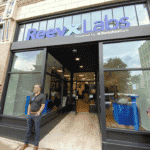
Big Lenders Look for Growth in Underbanked Areas
TD Bank’s newest Massachusetts branch is a window into how the lender – and its next-door rival – believes it can add new customers by opening physical locations in historically underbanked areas.

TD Bank’s newest Massachusetts branch is a window into how the lender – and its next-door rival – believes it can add new customers by opening physical locations in historically underbanked areas.

Amid the call to banks to offer bank accounts that could help low-income households, Santander Bank has started offering a consumer checking account to serve the underbanked and help them achieve their financial goals.

Two years into a pandemic that’s highlighted challenges business owners of color face in accessing credit, a group of lawmakers and activists say a new public bank is the answer.

East Cambridge Savings Bank has launched three products designed to help consumers access bank accounts and build credit.

While the shift to digital banking has led lenders to close branches across New England, Berkshire Bank and Chase Bank are investing in their brick-and-mortar locations as tools to address financial issues and inequities highlighted by the pandemic.

With the pandemic shining a light on the challenges faced by households that lack banking relationships, four credit unions, including two in New England, have joined together to launch a mobile app that they say could help address the problem.

Marlborough-based Digital Federal Credit Union, better known as DCU, has joined forces with three other credit unions to launch a challenger bank targeted at low- to moderate-income customers.

Expanded federal anti-poverty aid during the pandemic has been hailed by advocates as something that could lift millions above the poverty line, but for some, its success could hinge on whether they have access to a bank account.

Berkshire Bank has joined the national Bank On initiative to reach unbanked and underbanked consumers by offering a checking account with no overdraft charges or monthly maintenance fees.
The Biden administration has announced that it will make financial equity, diversity and inclusion a priority. One specific initiative focuses on increasing access to the unbanked and underbanked through postal banking and the digital dollar wallet.

The pandemic has shown the challenges many low-income households face from not having banking relationships, including delays in receiving critical funds, costs for using alternative services and struggles navigating the Paycheck Protection Program.

The city of Boston has added another partner to its initiative to provide checking accounts to the city’s unbanked and underbanked residents.

From the pandemic’s effects on business customers and digital acceleration to conversations about racial inequalities in the industry, the year 2020 saw banking and lending confronting possibly long-lasting changes to the industry.
Developing new products with CDFIs and other nontraditional financial institutions will limit risk to banks and open doors to new customer bases in a responsible way.
Since George Floyd’s death, many banks have leapt forward with billions in pledges to communities of color. Those actions should be praised, but lenders must look beyond addressing racial diversity and economic inequality with charity if they want to thrive in a changing America.

More Americans than ever obtained a basic bank account in 2019, the Federal Deposit Insurance Corp. said Monday. But data was gathered before the outbreak of the coronavirus pandemic and start of this historic recession.

The coronavirus crisis shows the need for more banks and credit unions to help poor and working-class Massachusetts residents develop banking relationships, both bankers and advocates say.

Just as uncertainty has marked each stage of the Paycheck Protection Program – from features changing right before launch to system problems in the second round – community banks face another unknown with the program: its effect on bank finances in the coming months.

Senate Democratic Leader Chuck Schumer said Tuesday agreement has been reached on major elements of a nearly $500 billion coronavirus aid package for small businesses, as well as additional help for hospitals and virus testing.

With hundreds of thousands out of work in Massachusetts, the executive director of Boston-based nonprofit Commonwealth, Timothy Flacke, sees ways for banks and credit unions to help build financial security, even during a crisis.